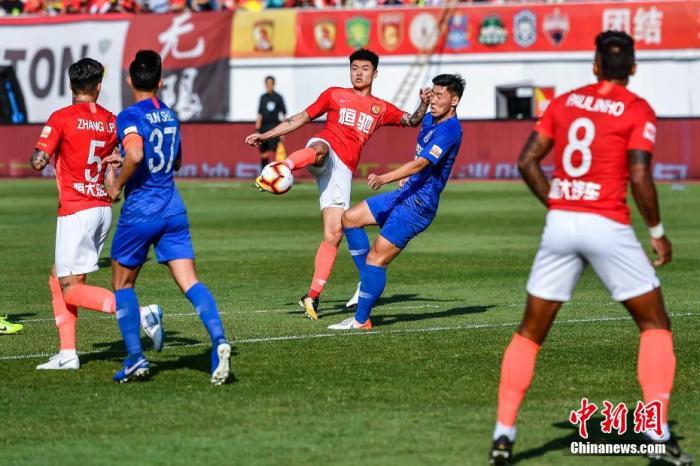China News Service Client, December 18th. On the 18th, the Chinese Football Association released "Measures to Further Promote the Reform and Development of Football". By 2023, the Chinese Super League will expand to 18 teams and implement the "men's football with women's football" model.
Data map: Guangzhou Evergrande in the Super League.
Photo by China News Agency reporter Chen Jimin
According to the announcement, in 2023, the Chinese Super League will expand to 18 participating teams, the Chinese Premier League will expand to 20 participating teams, and the Chinese Premier League will expand to about 30 participating teams.
Implement the "men's football with women's football" model of the Chinese Super League club, and regard the establishment of a professional women's football team as one of the access conditions for the Chinese Super League club to promote the development of women's football.
In addition, professional clubs at all levels complete the "non-corporate" name change before the 2021 season. If the change is not completed, the club registration qualification will be cancelled.
In 2021, the Chinese Football Association will also complete the registration of the establishment of professional league management agencies and the establishment of organizations with independent corporate legal personality.
The Chinese Football Association and the newly established professional league management agency clarify their responsibilities through their respective articles of association and mutual agreement, and the two parties exchange representatives to participate in the discussion and decision-making of relevant issues.
The main person in charge of the professional league management agency is recommended by the Chinese Football Association.
The Chinese Football Association exclusively owns the property rights and supervision rights of the three-level professional leagues of the Chinese Super League, the Chinese A and the Chinese B. It is responsible for formulating the promotion and promotion system, the youth training system, the financial management regulations of the professional clubs, the salary policy of the players, and the registration and transfer of the players. System and foreign player policy.
The professional league management agency has the management power, operating power and income distribution power of the three-level professional leagues, and has management autonomy in club access, competition organization, referee management, disciplinary punishment, dispute resolution, market development, and income distribution.
(Finish)

